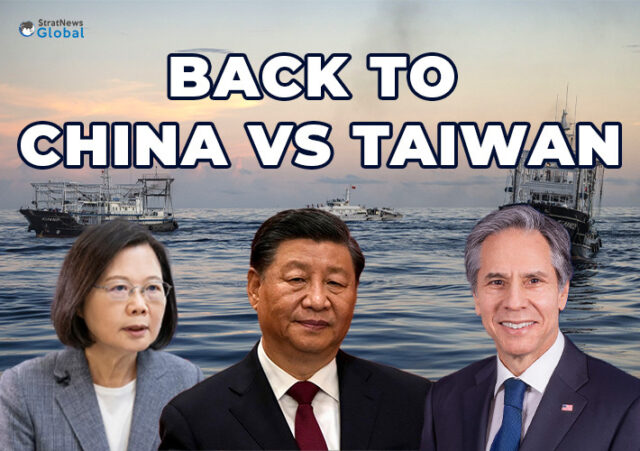Taiwan observed increased Chinese military manoeuvres near its territory on Saturday, noting that 12 aircraft crossed the critical median line of the Taiwan Strait. This activity occurred a day after U.S. Secretary of State Antony Blinken concluded his visit to China. The United States, despite lacking formal diplomatic relations with Taiwan, remains its primary international backer and arms provider. During his visit, Blinken emphasised the vital importance of preserving peace and stability in the Taiwan Strait.
Democratically governed Taiwan has faced increased military pressure from China, which views the island as its own territory. Taiwan’s government rejects those claims.
Taiwan’s defence ministry said that from 9:30 a.m. (0130 GMT) on Saturday it had detected 22 Chinese military aircraft, including Su-30 fighters, of which 12 had crossed the median line to Taiwan’s north and centre.
The line once served as an unofficial border between the two sides over which neither sides’ military crossed, but China’s air force now regularly sends aircraft over it. China says it does not recognise the line’s existence.
Taiwan’s defence ministry said the aircraft were involved in “joint combat readiness patrols” with Chinese warships, adding that Taiwanese aircraft and ships responded “appropriately”. It did not give details.
China’s defence ministry did not answer calls seeking comment outside of office hours on Saturday.
Taiwan’s armed forces are well-equipped and well-trained but dwarfed by those of China’s, especially the navy and air force, which respond almost daily to Chinese missions.
China considers Taiwan the most important issue in its relations with the United States, and Beijing has repeatedly demanded Washington end weapons sales to Taiwan.
Taiwan President-elect Lai Ching-te, set to assume office on May 20 following his victory in the January elections, is viewed by Beijing as a dangerous separatist. His repeated invitations for dialogue have been consistently rejected by China. On Thursday, Lai stated that China should feel confident enough to engage in discussions with Taiwan’s legitimately elected government. Echoing the sentiments of the outgoing President Tsai Ing-wen, Lai emphasised that only the people of Taiwan have the right to determine their future.
With Inputs From Reuters
















